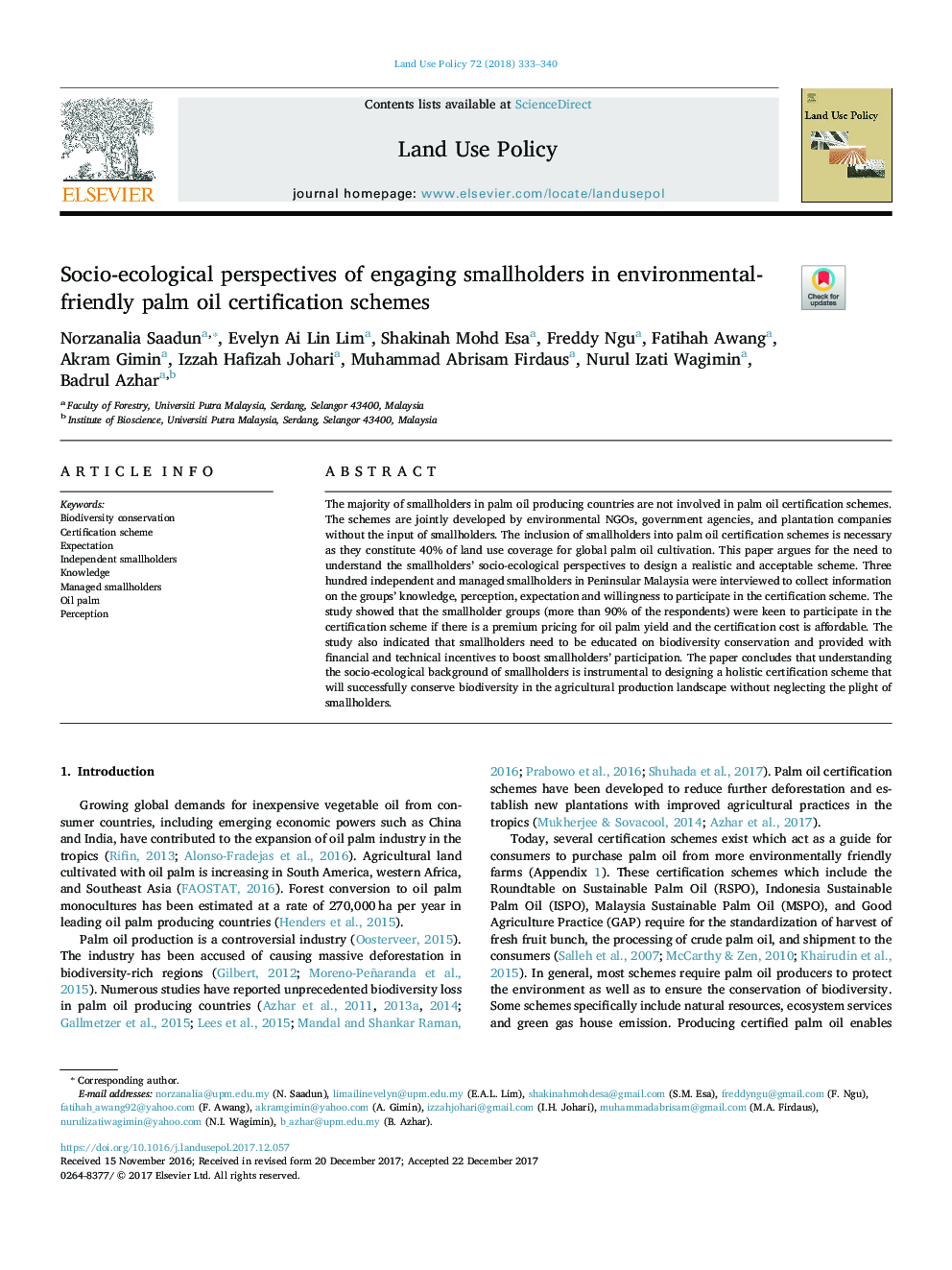| Article ID | Journal | Published Year | Pages | File Type |
|---|---|---|---|---|
| 6546639 | Land Use Policy | 2018 | 8 Pages |
Abstract
The majority of smallholders in palm oil producing countries are not involved in palm oil certification schemes. The schemes are jointly developed by environmental NGOs, government agencies, and plantation companies without the input of smallholders. The inclusion of smallholders into palm oil certification schemes is necessary as they constitute 40% of land use coverage for global palm oil cultivation. This paper argues for the need to understand the smallholders' socio-ecological perspectives to design a realistic and acceptable scheme. Three hundred independent and managed smallholders in Peninsular Malaysia were interviewed to collect information on the groups' knowledge, perception, expectation and willingness to participate in the certification scheme. The study showed that the smallholder groups (more than 90% of the respondents) were keen to participate in the certification scheme if there is a premium pricing for oil palm yield and the certification cost is affordable. The study also indicated that smallholders need to be educated on biodiversity conservation and provided with financial and technical incentives to boost smallholders' participation. The paper concludes that understanding the socio-ecological background of smallholders is instrumental to designing a holistic certification scheme that will successfully conserve biodiversity in the agricultural production landscape without neglecting the plight of smallholders.
Related Topics
Life Sciences
Agricultural and Biological Sciences
Forestry
Authors
Norzanalia Saadun, Evelyn Ai Lin Lim, Shakinah Mohd Esa, Freddy Ngu, Fatihah Awang, Akram Gimin, Izzah Hafizah Johari, Muhammad Abrisam Firdaus, Nurul Izati Wagimin, Badrul Azhar,
